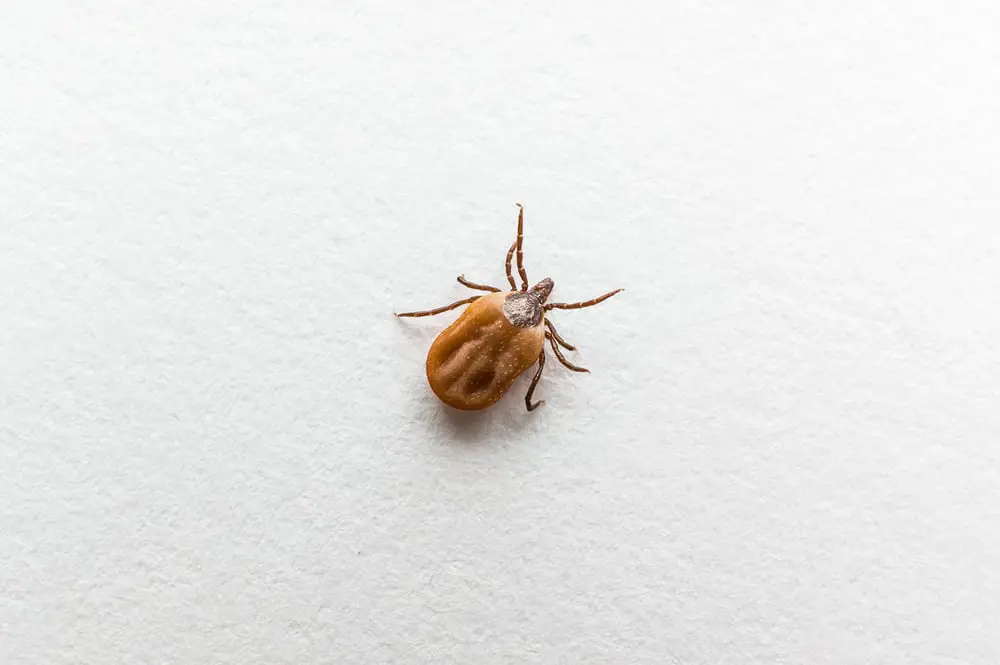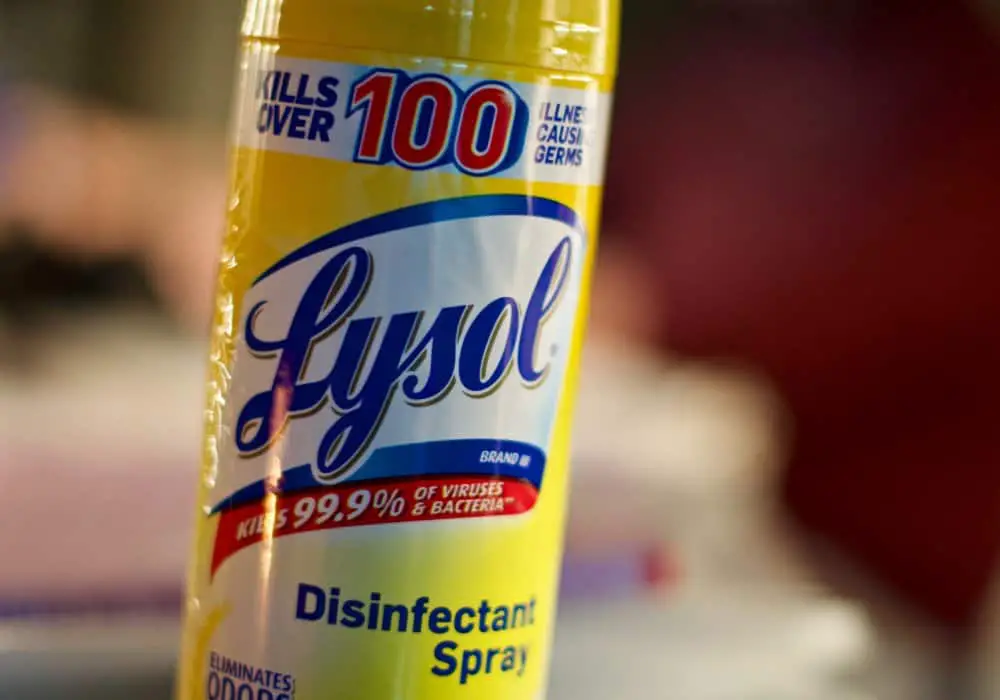One of the questions I have been asked the most is how to effectively deal with flea infestations. Regularly people ask whether Lysol is an effective flea killer since it kills most other things we don’t want in our homes.
Key Points:
- Lysol can kill fleas and ticks by disrupting their nervous system, but it is not specifically designed for this purpose and should not be the only method of flea control.
- Using Lysol alone is not enough to control a flea infestation, as fleas can lay eggs in carpets, furniture, and other areas that may be resistant to Lysol.
- Lysol can be harmful if ingested or inhaled and should not be used directly on pets, making it ineffective against pests living and breeding on them.
As a disinfectant, harsh chemicals like Lysol can stop germs and other pathogens from leading to illness and have been shown to wipe out pests like ants and cockroaches.
In this article, we’ll explore the topic of using Lysol to kill fleas, including its effectiveness, application methods, and potential dangers. We’ll also look at alternative flea killers and their benefits and drawbacks to see if anything else around your home can be an even more effective flea and tick remedy.
Learn how to kill ticks and fleas with Lysol in the following sections below.
Will Lysol Disinfectant Work on Ticks or Fleas?
As expected, yes, Lysol can kill fleas. Lysol is a disinfectant spray that is designed to kill various types of bacteria and viruses and leaves surfaces free from reinfestation for several hours. Since flea-infested areas are also often filthy, using a disinfectant product to clean as well as begin dealing with a severe infestation is a good strategy.
However, Lysol is not specifically designed to kill fleas.
While Lysol can kill fleas, it is not the most effective flea killer and should not be used as the only method of flea control. The toxicity level of Lysol also makes it harmful to use on living creatures as it can harm sensitive skin, cause an allergic reaction, or lead to severe health issues if accidental ingestion occurs.
There are better non-toxic ways and more specialized products to wipe out fleas and ticks on your pets.
How Does Lysol Kill Fleas?
Lysol kills fleas by disrupting their nervous system, which ultimately leads to their death. The spray contains various chemicals that work together to kill fleas, including benzalkonium chloride and ethanol.
These chemicals can penetrate the flea’s exoskeleton and attack its nervous system, causing paralysis and death. While it is not designed for this use, it is an effective solution to wipe out fleas on surfaces with lots of flea activity or to kill a tick looking for a place to drop onto prey.
Is Killing Ticks with Lysol Advisable?

While Lysol can be effective in killing ticks and fleas, there are other more effective and safer flea-killing as well as tick-eradicating methods available. Using Lysol alone is not enough to control a flea infestation. Fleas can lay eggs in carpets, furniture, and other areas, and these eggs can be resistant to Lysol.
Most importantly, though is that Lysol is not designed to be used directly on pets and can be harmful if ingested or inhaled, making it ineffective against pest living and breeding on your pets.
What Are the Steps to Kill Fleas with Lysol?
If you decide to use Lysol to kill fleas, it’s important to follow the steps below to ensure you get the results you are looking for. Since Lysol is a common household item, it is likely you will have some on hand to use in the event of an unexpected flea or tick invasion.
While it is not a flea control product, Lysol can do some damage but will need to be combined with other actions to end the flea lifecycle and get rid of any flea traces or tick corpses after they have been killed.
Vacuum Your Home
When dealing with any pest, and especially when it comes to flea repulsion, the vacuum cleaner is your best friend. Fleas and ticks can really work their way into deep hiding spots, but repeatedly sucking them up will reduce the number of breeding adults laying eggs and help to curb the infestation of fleas.
Inside vacuum bags, fleas cannot get the blood meal they need to reproduce, and the next generation can be prevented if you clean fastidiously enough. Before any treatment, vacuum your home thoroughly.
Spray Lysol
For Lysol to have insecticidal properties, it needs to be sprayed directly on surfaces where fleas may be present, such as carpets, furniture, and pet bedding. The active ingredients in Lysol that offer disinfectant properties will kill these pests in cases of direct exposure.
Residual exposure may or may not be effective depending on the length of exposure and the time that has passed since the initial application.
Wait
Avoid immediately wiping the surface as you would do when cleaning or sanitizing a workstation. Instead, wait for 10-15 minutes to allow the Lysol to penetrate and kill the fleas. This is extra important on cotton cloth, soft furnishings, and animal bedding, where fleas may be deeply enmeshed and hard to reach.
Vacuum Again
If the chemicals were effective, a large percent of adult fleas present on the sprayed surface will have died, and the area will be littered with tiny flea carcasses. Another round of vacuuming will pick up this debris as well as remove some of the remaining Lysol and even catch some flea eggs or ticks hiding in the cracks.
Alternative Flea Killers
There are various alternative flea killers available that are more effective and safer than Lysol. If you have access to any of the methods below, you should proceed with using them instead of trying to kill fleas and ticks with Lysol.
Depending on the level of infestation and where the fleas and ticks are located, you can use any of the below flea killers or incorporate a combination of methods to stop all pests dead.
| Flea Killer | Application Method | Effects |
| Flea Bombs | Fogger | A comprehensive pest control method that kills adult fleas and their larvae and will leave a residual effect that can kill flea eggs as they hatch up to two weeks after the initial blast |
| Diatomaceous Earth | Powder | A simple solution that can be used to great effect for long periods of time, the tiny dried diatoms cut the exoskeleton of fleas leading to severe dehydration and extreme vulnerability, and is effective as long as it is in place and dry |
| Essential Oils | Spray | A range of oils can be used to kill and repel bugs, with peppermint oil and tea tree being two of the most effective and reliable against fleas and other common household pests |
| Frontline | Topical Medication | Kills any fleas and ticks on the pet’s fur and can prevent future generations from hatching due to systemic and reproduction-restricting effects; combined with pet flea shampoos, it will kill fleas on contact and eliminate other annoying pests |
| Capstar | Oral Medication | Use on pets for fleas that are hard to reach by turning the blood toxic and making flea bites fatal, killing flea larvae and ending the current flea life cycle |
What Are the Dangers of Using Lysol to Kill Fleas?
Using Lysol to kill fleas can be dangerous if not used properly. Lysol contains chemicals that can be harmful if ingested or inhaled. Pets can be especially sensitive to Lysol, and using it directly on them can cause skin irritation or other health issues.
Additionally, Lysol is not designed to be used as the only method of flea control and may not be effective in completely eliminating a flea infestation.
It’s always best to consult with a pest control professional for effective and safe flea control methods or use products that have been specifically designed to wipe out fleas, ticks, and any other creepy crawlies that make their way inside your home or onto your pets.



